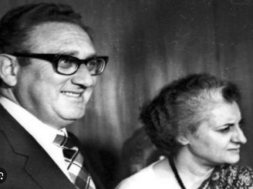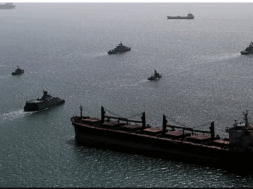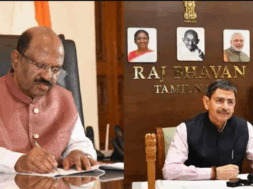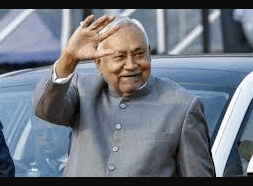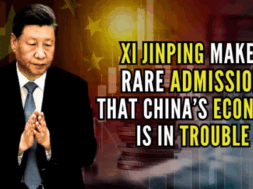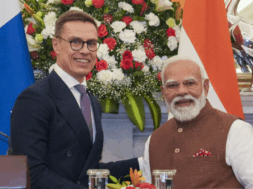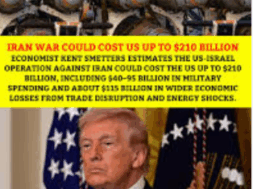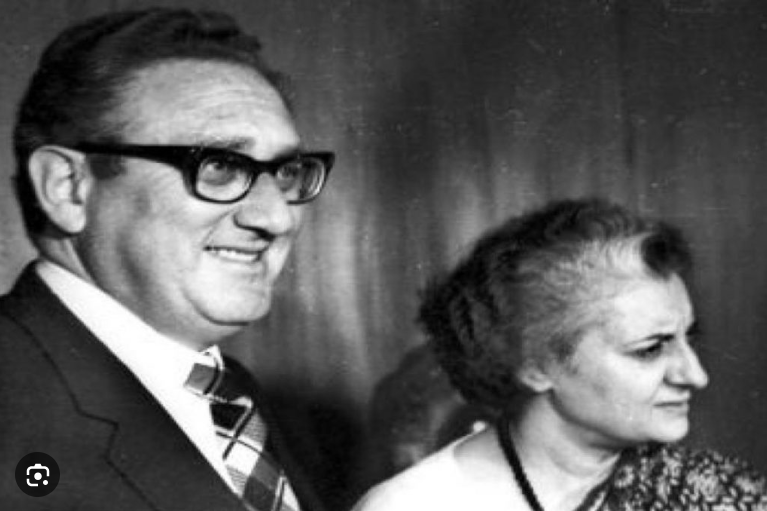
Roving Periscope: Henry “Shuttle Diplomat” Kissinger, 100, passes away
Virendra Pandit
New Delhi: When the Sunni terrorist gang Hamas invaded Israel on October 7, killing over 1,200, and invited death and destruction in the Gaza Strip, US Secretary of State Antony Blinken undertook a hectic weeks-long tour of the Middle East capitals trying to prevent the conflagration from spreading through the volatile region.
A similar whistle-stop hopping of capitals, undertaken in the 1970s, by then US Secretary of State Henry Kissinger was known as “shuttle diplomacy. He was a multi-faceted personality—a former soldier, an academic, writer, diplomat, consultant to multinationals and governments alike, and a public speaker…
Hugely controversial, Kissinger strode like a colossus in the world of diplomacy for eight years in the 1970s and left an indelible mark on reshaping geopolitics—by ‘ensuring’ that China replaced Russia as America’s rival.
India also had a taste of Kissinger’s shenanigans. In 1971, when the US Navy dispatched its Seventh Fleet in the Bay of Bengal to browbeat India during its war against Pakistan and prevent the birth of Bangladesh, Kissinger was the key operator of this strategy. It, however, miserably failed because of that Iron Lady, Prime Minister Indira Gandhi’s determination, and her sidekick Parmeshwar Narayan Haksar’s matchless diplomacy.
Kissinger, 100, passed away at his home in Connecticut on Wednesday.
He had successfully worked under two US Presidents—Richard Nixon and Gerald Ford—whose careful successors slowly edged him out as he had grown too big for his boots. But he remained the world’s best-known diplomat for decades.
Viewed as a hardliner, conservative ‘war-monger’ type, a firm believer in realpolitik, he triggered a huge controversy when he “won” the Nobel Peace Prize in 1973, sharing it with Vietnamese leader Le Duc Tho who refused to accept it.
Born in a Jewish family as Henry Alfred Kissinger (May 27, 1923-November 29, 2023), his parents escaped Germany to land in the US in 1938 when Adolf Hitler plotted the Holocaust and the Second World War (1939-45).
He worked his way up through academia and other arenas. During the 1970s, he defined American foreign policy with his strategies to end the Vietnam War and contain communist countries.
The Harvard University professor and diplomat earned praise for his role in opening China to the West, bringing about détente with the Soviet Union, and initiating arms-control agreements under Republican Presidents Richard Nixon and Gerald Ford.
Besides accolades, Kissinger also earned the wrath of many for supporting massive bombing campaigns in Vietnam and Cambodia, backing the authoritarian regime of Chile’s Augusto Pinochet, and turning a blind eye to genocide in East Timor and Bangladesh.
Credited with popularizing the phrase “balance of power,” and use of diplomacy and force, he had little use for idealism in formulating foreign policy, setting him at odds with human-rights advocates in his eight years in office as the National Security Adviser and later as the Secretary of State.
He justified Cold War policy decisions by triggering conflicts in remote theaters like Vietnam, Chile, and the Middle East. “If I had to choose between justice and disorder, on the one hand, and injustice and order, on the other, I would always choose the latter,” Kissinger said, more than once, borrowing from German writer Johann Wolfgang von Goethe.
Critics viewed his single-minded dedication to restricting Soviet hegemony, come what may, as a moral failure in the pursuit of what he considered a higher cause. However, even his critics acknowledged his scholarly statesmanship and intellectual brilliance.
“Power is the ultimate aphrodisiac,” he often remarked.
But he also had many enemies in the US establishments. As Nixon’s NSA, Kissinger fashioned a policy-making process based on secrecy and exclusion, catering to his boss’s disdain for bureaucracy by circumventing the State Department and defense officials. They effectively ran foreign policy from the White House, back-channeling messages to international leaders without informing the offices responsible, the media reported.
When Nixon came to office in January 1969, about half a million US troops were serving in Vietnam. Within four years, the new administration would withdraw almost all of them while it sought a face-saving way out of a war that was becoming increasingly unpopular with the American public.
Secret meetings in Paris between Kissinger and North Vietnamese negotiator Le Duc Tho ultimately led to a cease-fire in 1973.
He also played to Nixon’s paranoia by ordering the wiretapping of subordinates and journalists to identify the source of information leaks. The expansive use of surveillance by the White House led to the President’s 1974 resignation over the Watergate Scandal, which stemmed from an effort to bug the headquarters of the Democratic National Committee.
But China owes its rise in this era to Kissinger.
By thawing US relations with China and achieving détente with the Soviet Union, he achieved what was called “triangular diplomacy.” Exploiting a rift between the two communist countries, the Nixon administration drew China out of its diplomatic isolation and forced the Soviets to reshape their foreign policy.
Kissinger made secret trips to China in 1971 to pave the way for President Nixon’s visit the following year. The diplomatic coup stunned the American public and the world.
One of Kissinger’s most unpopular acts in government was masterminding Nixon’s secret war in Cambodia. In 1969 and 1970, American B-52 planes dropped more than 100,000 tons of bombs on Cambodia-based communist sanctuaries used by the North Vietnamese Army and the Viet Cong, also known as the National Front for the Liberation of South Vietnam.
Cambodia, a neutral nation governed by Prince Norodom Sihanouk at the time, was dragged into the Vietnam conflict by both sides, and the US incursions spread the influence of the Khmer Rouge, which would seize power in 1975. It then embarked on the genocide that killed almost 2 million people.
In 1973, Kissinger also engineered a lasting peace between Israel and Egypt after the Yom Kippur War by acting as an intermediary as part of “shuttle diplomacy” to resolve the conflict. Egypt and Syria’s attack on Israel ended in land concessions to the Arab countries, even though they had been outmaneuvered in the Sinai and the Golan Heights.
With the Egyptian army cut off and trapped in the desert, Kissinger applied pressure on Israel and gained favor with Egypt for salvaging a disastrous situation. Kissinger’s role in the peace deal created the conditions for Egypt’s later recognition of the Jewish state in 1979. Egyptian President Anwar Sadat paid for his olive branch with his life: In October 1981, he was gunned down by Islamic extremists during a military parade in Cairo.
In July 2023, at age 100, Kissinger met with Chinese President Xi Jinping in Beijing to discuss US-China relations in his capacity as a private citizen.
Coming full circle, that was his last foray on ‘foreign’ soil.
